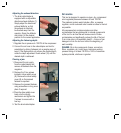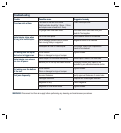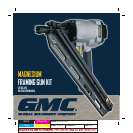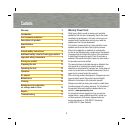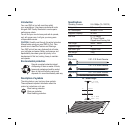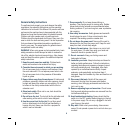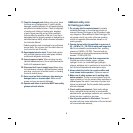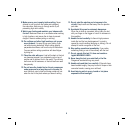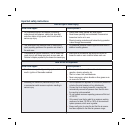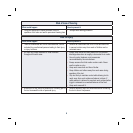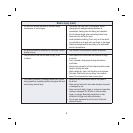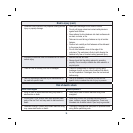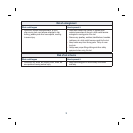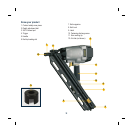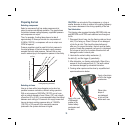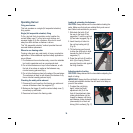
7
Risk of eye or head injury
What could happen How to prevent it
• Air powered equipment are capable of propelling
materials such as fasteners, metal chips, saw dust,
and other debris at high speed, which could result in
serious eye injury.
• Always wear safety glasses with side shields.
• Never leave operating tool unattended. Disconnect air
hose when tool is not in use.
• Wearing hearing protection and helmet during operation
is also strongly recommended.
• Tool attachments can become loose or break and fly
apart propelling particles at the operator and others in
the work area.
• For additional protection use an approved face shield in
addition to safety glasses.
• Compressed air can be hazardous. The air stream can
cause injury to soft tissue areas such as eyes, ears, etc.
Particles or objects propelled by the stream can cause injury.
• Make sure all connections are secure and check air
hoses for weak or worn condition before each use.
Risk of fire or explosion
What could happen How to prevent it
• Air nailers are capable of generating sparks which could
result in ignition of flammable materials.
• Never operate tools near flammable substances as
gasoline, cleaning solvents, etc.
• Work in a clean, well ventilated area.
• Never use oxygen, carbon dioxide or other gases as an
air source for air tools.
• Exceeding the maximum pressure rating of tools
or accessories could cause an explosion resulting in
serious injury.
• Use compressed air regulated to a maximum pressure at
or below the rated pressure of any attachments.
• Connect tool to air supply hose with a coupling that
automatically removes all pressure from the tool when
the coupling is disconnected.
• Do not exceed maximum operating pressure of this tool
of 120 PSI.
• Only use air hose that is rated for a maximum working
pressure of at least 120 PSI or 150% of the maximum
system pressure, which ever is greater.
• Always verify prior to using the tool that the air source
has been adjusted to the rated air pressure range.
Important safety instructions



